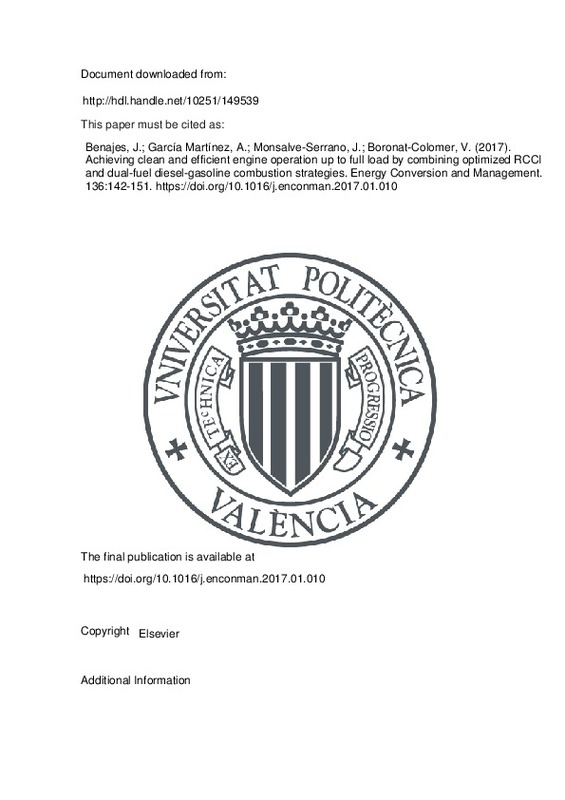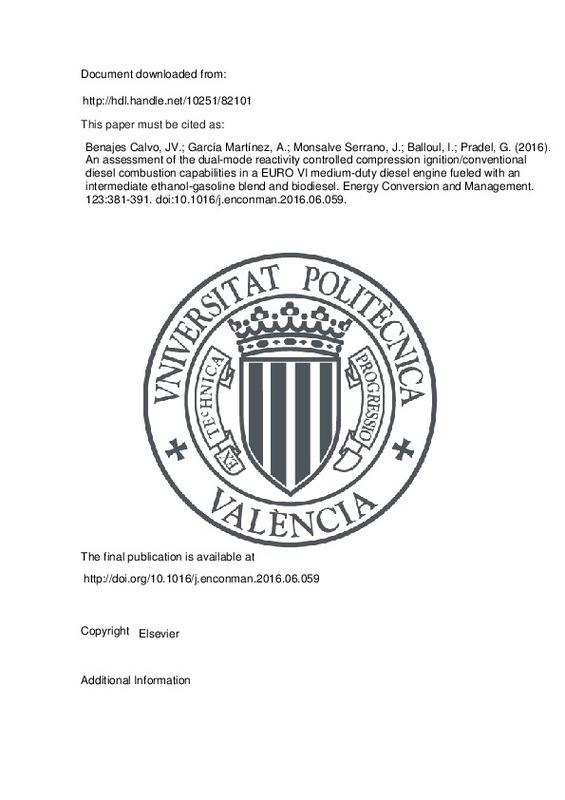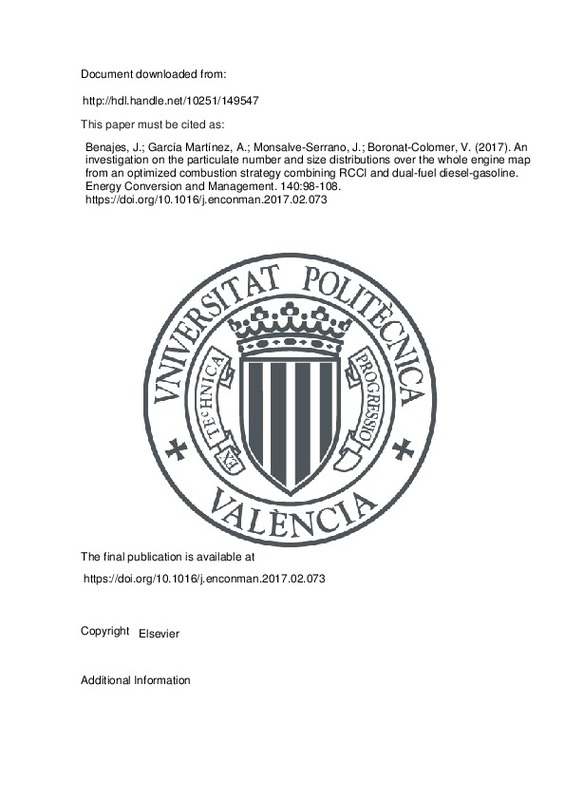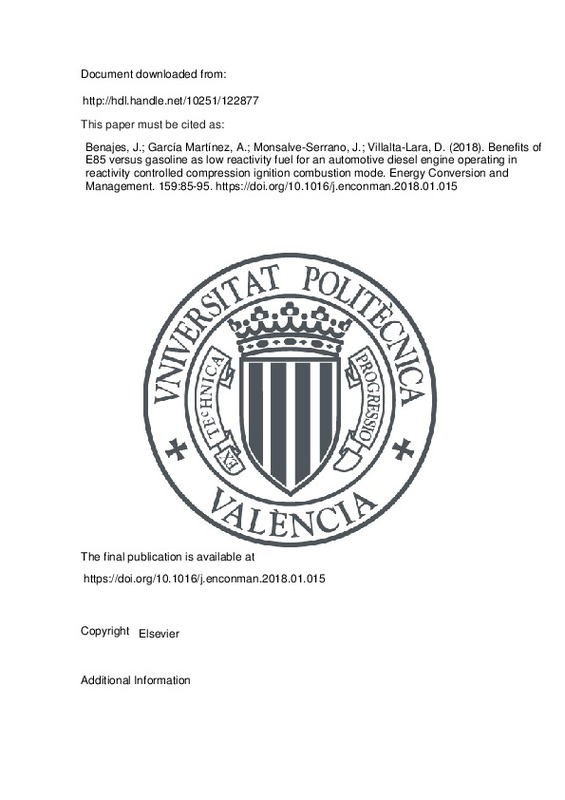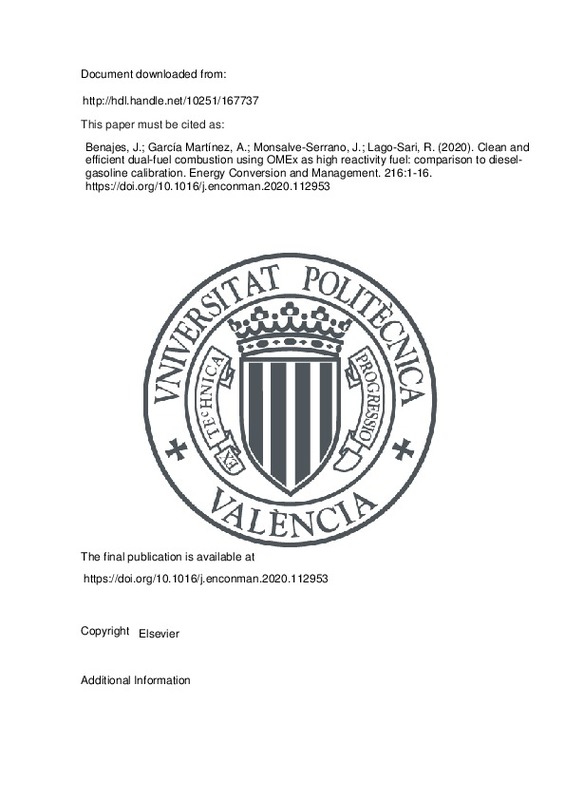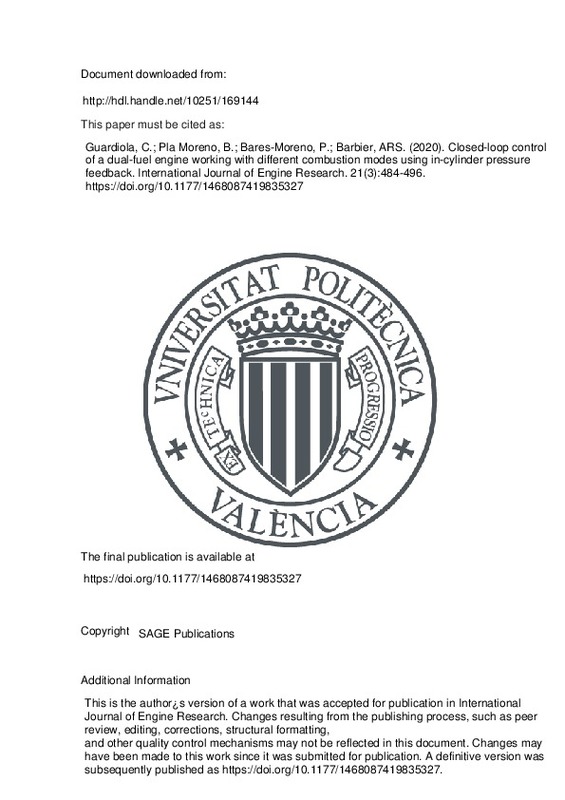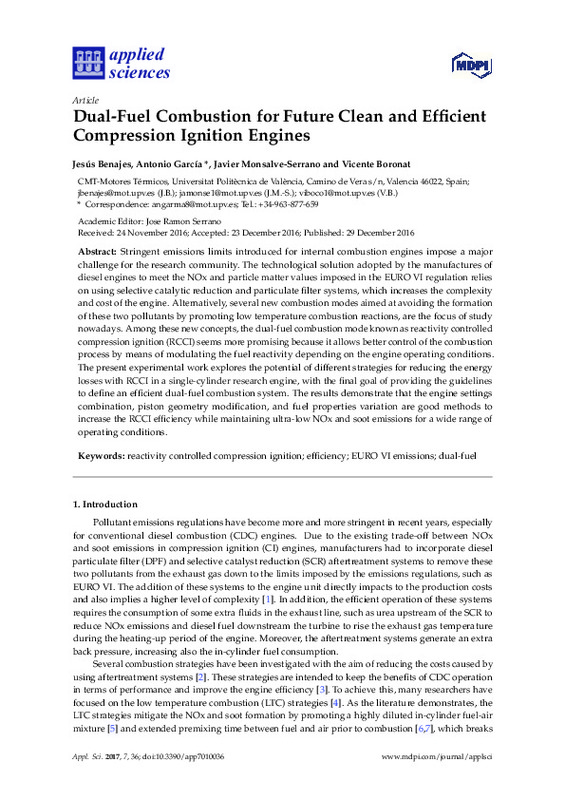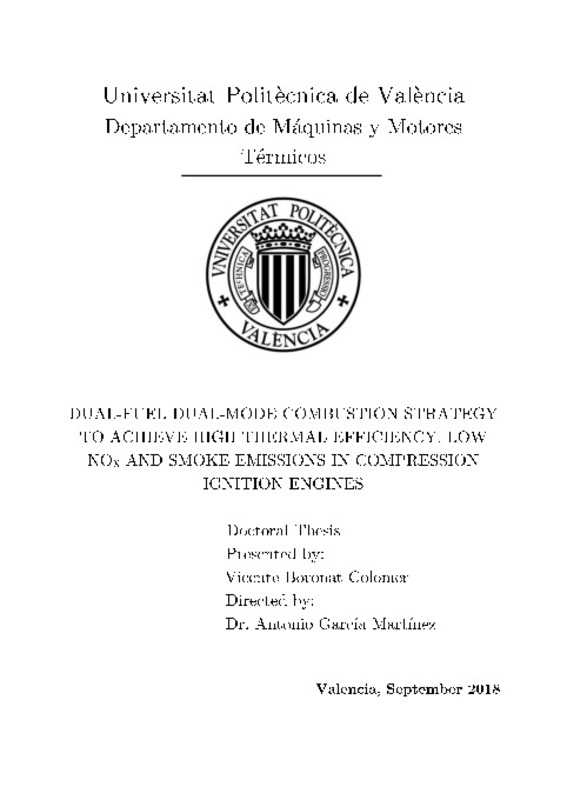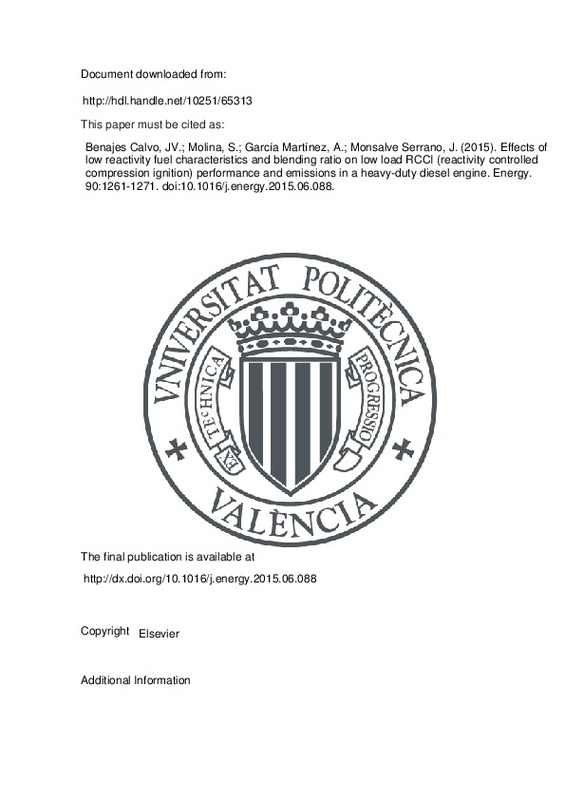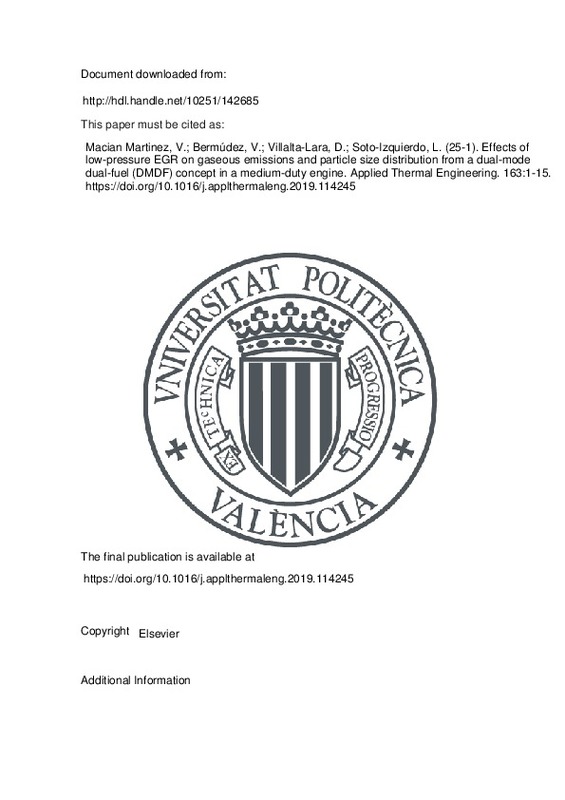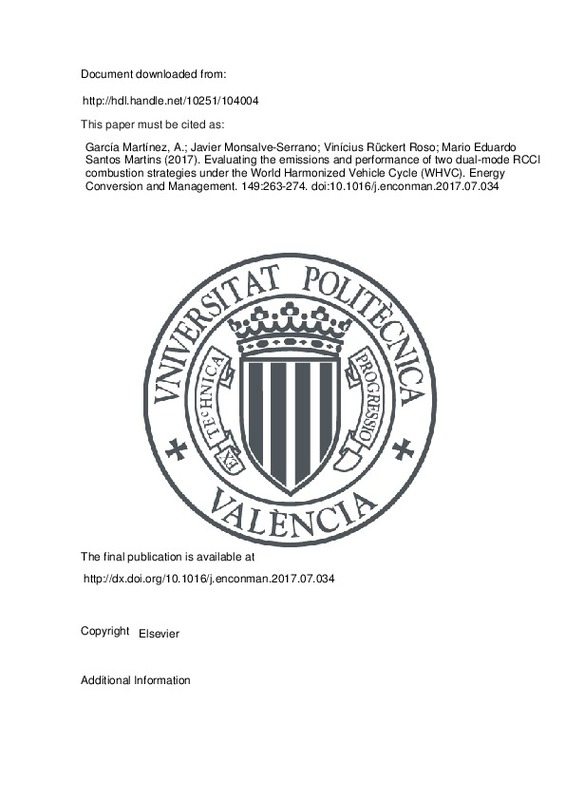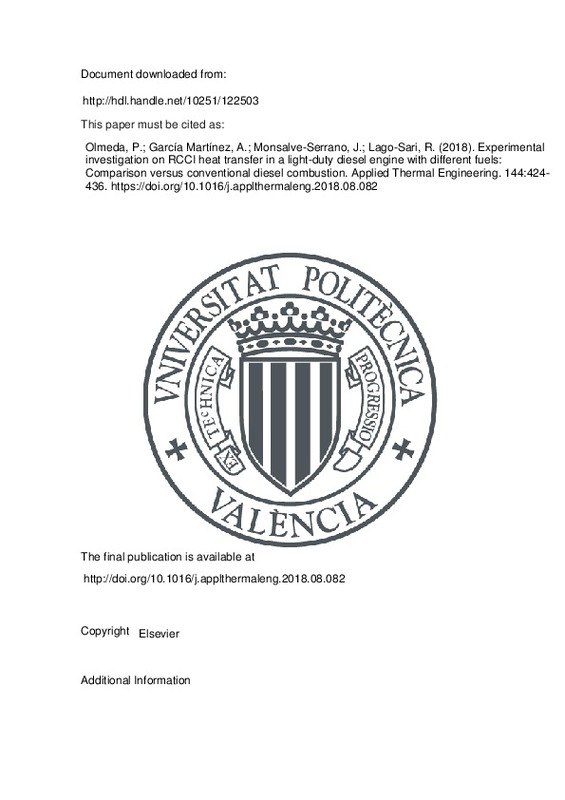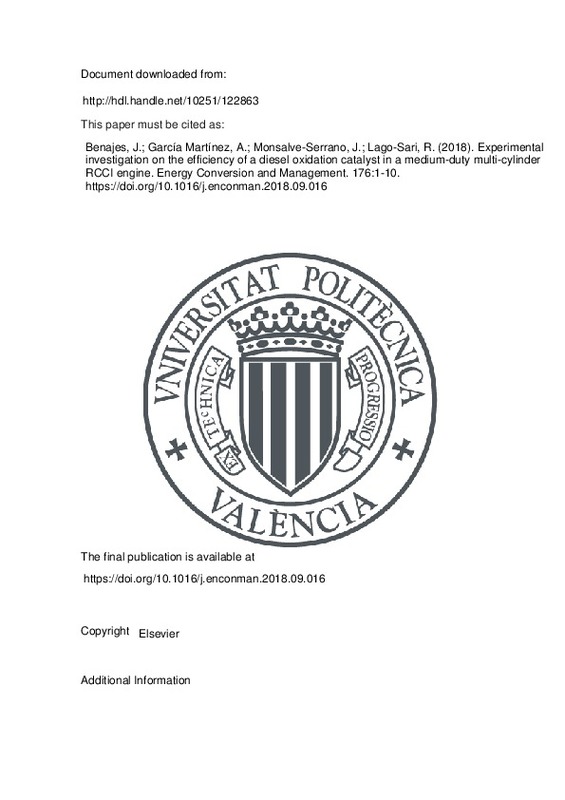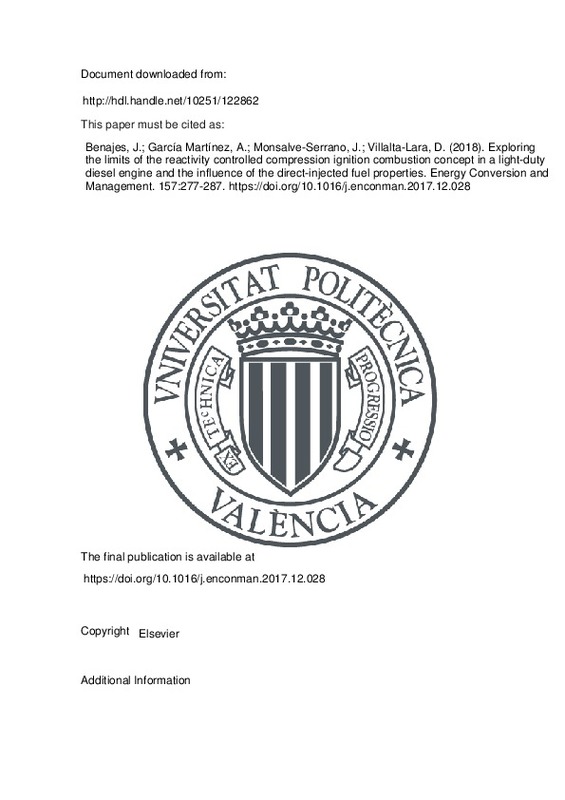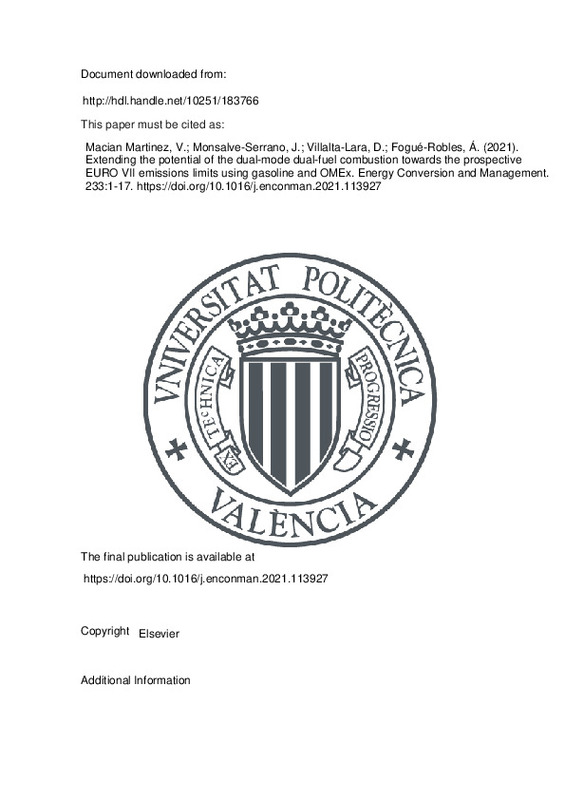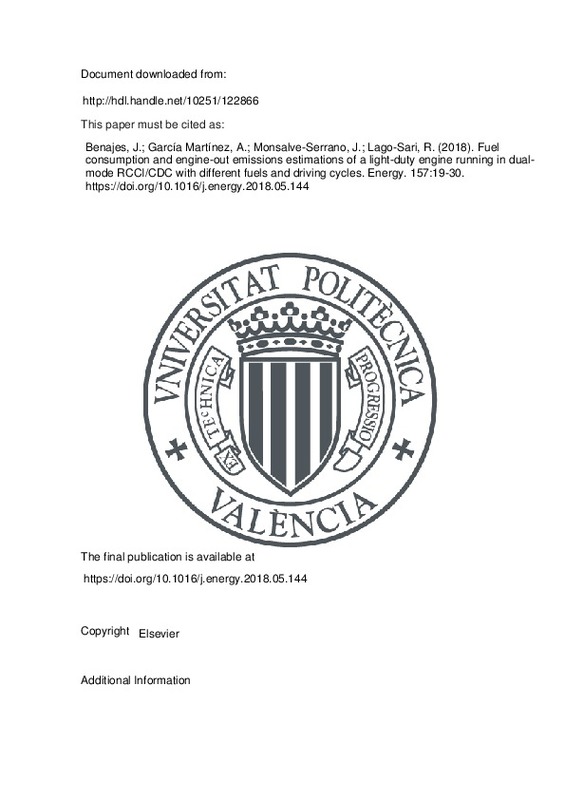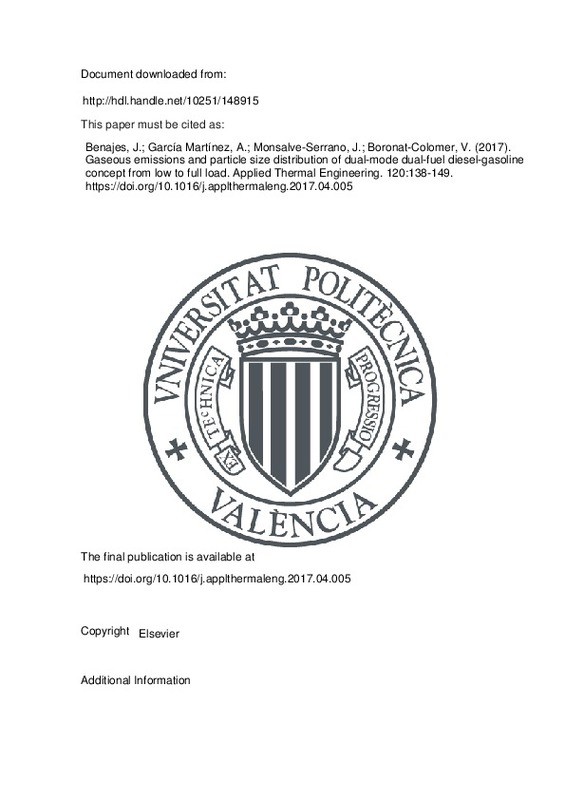

Listar por palabra clave "Reactivity controlled compression ignition"
RiuNet: Repositorio Institucional de la Universidad Politécnica de Valencia
- RiuNet repositorio UPV
- :
- Listar por palabra clave
JavaScript is disabled for your browser. Some features of this site may not work without it.
Buscar en RiuNet
Listar
Mi cuenta
Ayuda RiuNet
Admin. UPV
Listar por palabra clave "Reactivity controlled compression ignition"
Mostrando ítems 1-20 de 28
-
Guardiola, Carlos; Pla Moreno, Benjamín; Bares-Moreno, Pau; Barbier, Alvin Richard Sebastien (Elsevier, 2018-09-22)[EN] Low temperature combustions such as Reactivity Controlled Compression Ignition (RCCI) have been shown to be a promising way to reduce pollutants at the exhaust, i.e. NOx and soot emissions, and increase the thermal ...
-
Benajes, Jesús; García Martínez, Antonio; Monsalve-Serrano, Javier; Boronat-Colomer, Vicente (Elsevier, 2017-03-15)[EN] This experimental work investigates the capabilities of the reactivity controlled compression ignition combustion concept to be operated in the whole engine map and discusses its benefits when compared to conventional ...
-
Benajes Calvo, Jesus Vicente; García Martínez, Antonio; Monsalve Serrano, Javier; Balloul, Iyad; Pradel, Gerard (Elsevier, 2016-09-01)This work investigates the capabilities of the dual-mode reactivity controlled compression ignition/conventional diesel combustion engine operation to cover the full operating range of a EURO VI medium-duty diesel engine ...
-
Benajes, Jesús; García Martínez, Antonio; Monsalve-Serrano, Javier; Boronat-Colomer, Vicente (Elsevier, 2017-05-15)[EN] Literature demonstrates that, for premixed low temperature combustion concepts, particulate matter cannot be directly extrapolated from soot emissions measurements, as typically done for conventional diesel combustion. ...
-
Benajes, Jesús; García Martínez, Antonio; Monsalve-Serrano, Javier; Villalta-Lara, David (Elsevier, 2018)[EN] This work shows the capabilities of E85 fuel to be used as low reactivity fuel in a high compression ratio light-duty diesel engine (17.1:1) running under reactivity controlled compression ignition concept. To do this, ...
-
Benajes, Jesús; García Martínez, Antonio; Monsalve-Serrano, Javier; Lago-Sari, Rafael (Elsevier, 2020-07-15)[EN] From previous results in a single-cylinder engine platform, it can be concluded that the dual-mode dual-fuel (DMDF) concept can be a potential solution to overcome the major constraints found with other single-fuel ...
-
Guardiola, Carlos; Pla Moreno, Benjamín; Bares-Moreno, Pau; Barbier, Alvin Richard Sebastien (SAGE Publications, 2020-03)[EN] This work presents a closed-loop combustion control concept using in-cylinder pressure as a feedback in a dual-fuel combustion engine. At low load, reactivity controlled compression ignition combustion was used while ...
-
García Martínez, Antonio; Monsalve-Serrano, Javier; Villalta-Lara, David; Fogué-Robles, Álvaro (Elsevier, 2022-12-15)[EN] Internal combustion engines are still within the future of highway transport. Low-temperature combustion modes are prone to substitute conventional diesel combustion engines, seeking better performance and improved ...
-
Benajes, Jesús; García Martínez, Antonio; Monsalve-Serrano, Javier; Boronat-Colomer, Vicente (MDPI AG, 2017-01)[EN] Stringent emissions limits introduced for internal combustion engines impose a major challenge for the research community. The technological solution adopted by the manufactures of diesel engines to meet the NOx and ...
-
Boronat Colomer, Vicente (Universitat Politècnica de València, 2018-12-03)Elevada eficiencia térmica y mínimas emisiones contaminantes impuestas por las restrictivas normativas anticontaminación en motores alternativos representan el principal objetivos de los fabricantes de motores. La estrategia ...
-
Benajes Calvo, Jesus Vicente; Molina, Santiago; García Martínez, Antonio; Monsalve Serrano, Javier (Elsevier, 2015-10)This work investigates the effect of low reactivity fuel characteristics and blending ratio on low load RCCI (reactivity controlled compression ignition) performance and emissions using four different low reactivity fuels: ...
-
Macian Martinez, Vicente; Bermúdez, Vicente; Villalta-Lara, David; Soto-Izquierdo, Lian (Elsevier, 2019-12-25)[EN] The application of a low-temperature combustion concept, such as RCCI combustion under real engine operating conditions is extremely complex. However, the implementation of the dual-mode dual-fuel (DMDF) strategy ...
-
Lago Sari, Rafael (Universitat Politècnica de València, 2019-10-28)[ES] Las regulaciones sobre emisiones son un factor determinante que obliga a la investigación de nuevas alternativas para cumplir con sus restricciones. Los requisitos recientes para tratar con los contaminantes regulados ...
-
García Martínez, Antonio; Monsalve Serrano, Javier; Roso, Vinícius Rückert; Santos Martins, Mario Eduardo (Elsevier, 2017)[EN] This work compares the emissions and performance of two dual-mode reactivity controlled compression ignition (RCCI) combustion strategies under the World Harmonized Vehicle Cycle (WHVC), a chassis dynamometer version ...
-
Olmeda, P.; García Martínez, Antonio; Monsalve-Serrano, Javier; Lago-Sari, Rafael (Elsevier, 2018)[EN] Reactivity controlled compression ignition (RCCI) combustion has demonstrated to be able to avoid the NOx-soot trade-off appearing during conventional diesel combustion (CDC), with similar or better thermal efficiency ...
-
Benajes, Jesús; García Martínez, Antonio; Monsalve-Serrano, Javier; Lago-Sari, Rafael (Elsevier, 2018)[EN] Reactivity controlled compression ignition (RCCI) combustion is one of the most promising low temperature combustion (LTC) techniques, as it is able to provide ultra-low NOx and soot emissions together with higher ...
-
Benajes, Jesús; García Martínez, Antonio; Monsalve-Serrano, Javier; Villalta-Lara, David (Elsevier, 2018)[EN] This experimental work investigates the operational limits of the reactivity controlled compression ignition combustion concept in a light-duty single-cylinder diesel engine using the stock compression ratio (17.1:1) ...
-
Macian Martinez, Vicente; Monsalve-Serrano, Javier; Villalta-Lara, David; Fogué-Robles, Álvaro (Elsevier, 2021-04-01)[EN] Dual-mode dual-fuel (DMDF) combustion strategy has been corroborated to be a potential combustion mode to achieve ultra-low NOx and soot emissions, as requested by the future regulations on internal combustion engines. ...
-
Benajes, Jesús; García Martínez, Antonio; Monsalve-Serrano, Javier; Lago-Sari, Rafael (Elsevier, 2018)[EN] This work compares the performance and emissions of two dual-mode combustion concepts over different driving cycles by means of vehicle systems simulations. The dual-mode concept relies on switching between the dual-fuel ...
-
Benajes, Jesús; García Martínez, Antonio; Monsalve-Serrano, Javier; Boronat-Colomer, Vicente (Elsevier, 2017-06-25)[EN] Low temperature combustion concepts are in focus of study nowadays as a method to avoid the NOx-soot trade-off existing with conventional diesel combustion. One of the most promising strategy is known as reactivity ...
Mostrando ítems 1-20 de 28

Universitat Politècnica de València. Unidad de Documentación Científica de la Biblioteca (+34) 96 387 70 85 · RiuNet@bib.upv.es



